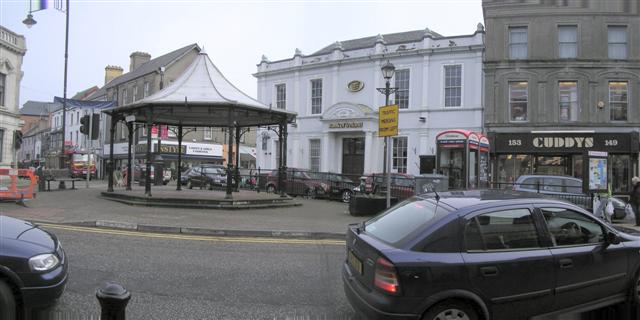
Filipino families have fled their home in Ballymena, Northern Ireland, after two nights of violent unrest that police have described as “racist thuggery.”
Michael Sancio, originally from the Philippines, was jolted awake around midnight when masked men began banging on windows at his home. Sancio lives with his wife, daughter, and another Filipino couple. Fearing for their safety, all five fled with only essential belongings like passports. They spent the night elsewhere and planned to stay farther from town the following night.
On Tuesday, hundreds of masked individuals rioted in the town of 30,000, attacking police, setting cars and homes on fire. Authorities are treating the destruction as racially motivated hate crimes.
“Last night I woke up at midnight because I heard people outside. I looked out the window and saw them—wearing black jackets, black pants, and masks,” said 27-year-old Sancio, who works at Wrightbus. “They were banging on our neighbor’s windows, and I panicked because my daughter was inside.”
Sancio said the rioters smashed the windows of their parked car and set it, along with a bin, on fire.
The violence followed the arrest of two 14-year-old boys charged in connection with a serious sexual assault on a teenage girl. The charges were read to the boys, who denied them through a Romanian interpreter, according to the BBC.
Although some rioters claimed they were not targeting Filipinos specifically, fear gripped the local Filipino community. Some residents placed stickers on their doors showing both British and Filipino flags with a message reading “Filipino lives here,” to differentiate themselves from Romanians.
Union Jack flags are commonly displayed in the predominantly pro-British town. Some residents reportedly hung flags to signal their local status in response to the unrest.
While Northern Ireland’s foreign-born population averages around 6%, Ballymena aligns more closely with the UK average of 16% and includes a sizable Filipino community. Though migrants have generally been welcomed, recent tensions in Northern Ireland—and similar unrest in the Republic of Ireland—have tested that goodwill.
Sian Mulholland, a local lawmaker from the Alliance Party, said she received late-night calls from migrant families too afraid to leave their homes. “Some families barricaded themselves inside until 2:30 a.m.,” she said. Mulholland added that she had previously raised concerns about the poor condition of some housing where migrant families live.
Sancio’s wife, Mariel Lei Odi, was working a night shift when the attack occurred. She rushed home, fearing for the safety of their two-year-old daughter. “When I got home, I asked my husband, ‘What happened to our daughter? What happened last night?’” she said.
Another resident of the home, Michael Assuro, said he and his wife, Jessa Sagarit, moved to Northern Ireland less than two years ago in hopes of building a better life. Sagarit now says she’s deeply shaken and traumatised.
As residents on Larne Street repaired smashed windows and cleaned up fire-damaged streets, the Filipino families expressed uncertainty about their future in Northern Ireland. Photo by Kenneth Allen, Wikimedia commons.




































